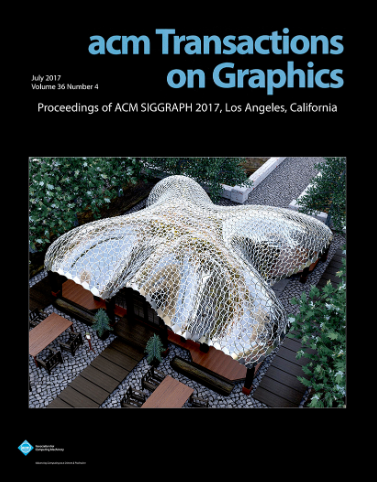Online Neural Denoising with Cross-Regression for Interactive Rendering
IF 9.5
1区 计算机科学
Q1 COMPUTER SCIENCE, SOFTWARE ENGINEERING
引用次数: 0
Abstract
Generating a rendered image sequence through Monte Carlo ray tracing is an appealing option when one aims to accurately simulate various lighting effects. Unfortunately, interactive rendering scenarios limit the allowable sample size for such sampling-based light transport algorithms, resulting in an unbiased but noisy image sequence. Image denoising has been widely adopted as a post-sampling process to convert such noisy image sequences into biased but temporally stable ones. The state-of-the-art strategy for interactive image denoising involves devising a deep neural network and training this network via supervised learning, i.e., optimizing the network parameters using training datasets that include an extensive set of image pairs (noisy and ground truth images). This paper adopts the prevalent approach for interactive image denoising, which relies on a neural network. However, instead of supervised learning, we propose a different learning strategy that trains our network parameters on the fly, i.e., updating them online using runtime image sequences. To achieve our denoising objective with online learning, we tailor local regression to a cross-regression form that can guide robust training of our denoising neural network. We demonstrate that our denoising framework effectively reduces noise in input image sequences while robustly preserving both geometric and non-geometric edges, without requiring the manual effort involved in preparing an external dataset.用于交互式渲染的交叉回归在线去噪神经技术
通过蒙特卡洛光线追踪生成渲染图像序列,是精确模拟各种光照效果的理想选择。遗憾的是,交互式渲染场景限制了这种基于采样的光线传输算法所允许的样本大小,从而产生了无偏但有噪声的图像序列。图像去噪作为一种采样后处理方法已被广泛采用,以将此类噪声图像序列转换为有偏差但时间稳定的图像序列。最先进的交互式图像去噪策略包括设计一个深度神经网络,并通过监督学习来训练该网络,即使用包含大量图像对(噪声图像和地面实况图像)的训练数据集来优化网络参数。本文采用了目前流行的交互式图像去噪方法,即依赖于神经网络。不过,我们提出了一种不同的学习策略,即利用运行时图像序列在线更新网络参数,而不是监督学习。为了通过在线学习实现去噪目标,我们将局部回归调整为交叉回归形式,以指导去噪神经网络的稳健训练。我们证明,我们的去噪框架能有效减少输入图像序列中的噪声,同时稳健地保留几何和非几何边缘,而无需人工准备外部数据集。
本文章由计算机程序翻译,如有差异,请以英文原文为准。
求助全文
约1分钟内获得全文
求助全文
来源期刊

ACM Transactions on Graphics
工程技术-计算机:软件工程
CiteScore
14.30
自引率
25.80%
发文量
193
审稿时长
12 months
期刊介绍:
ACM Transactions on Graphics (TOG) is a peer-reviewed scientific journal that aims to disseminate the latest findings of note in the field of computer graphics. It has been published since 1982 by the Association for Computing Machinery. Starting in 2003, all papers accepted for presentation at the annual SIGGRAPH conference are printed in a special summer issue of the journal.
 求助内容:
求助内容: 应助结果提醒方式:
应助结果提醒方式:


